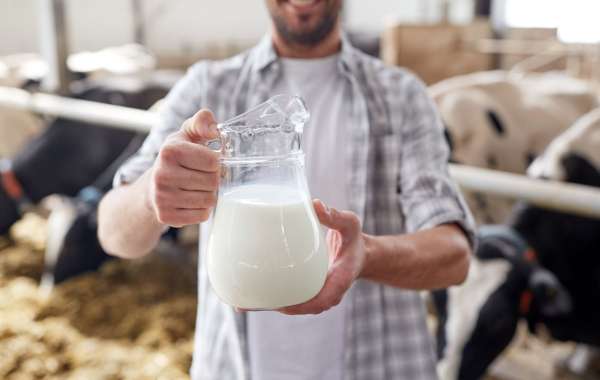Dairy consumption is deeply ingrained in our daily lives. From childhood, we are told that milk and other dairy products are essential for our health. However, there is a growing body of scientific research that reveals the hidden perils of consuming dairy. These critical health risks associated with dairy consumption cannot be ignored, and it is crucial for us to understand the potential dangers.
One of the primary health risks of dairy consumption is the link between dairy and various cancers. Research has shown that increased dairy intake is associated with a higher risk of developing prostate and ovarian cancers. The hormones found in dairy products, such as estrogen and insulin-like growth factor 1 (IGF-1), are believed to contribute to the development and progression of these cancers. It is essential for individuals at higher risk of these cancers to reconsider their dairy consumption habits.
Another concerning issue with dairy consumption is lactose intolerance. Lactose, the sugar present in milk, requires an enzyme called lactase for proper digestion. However, many people lack this enzyme or have insufficient amounts of it, leading to digestive issues when consuming dairy. Symptoms of lactose intolerance include bloating, diarrhea, and abdominal pain. It is estimated that around 65% of the global population has some degree of lactose intolerance, making dairy consumption a significant health risk for a large portion of the population.
Dairy consumption has also been linked to an increased risk of cardiovascular diseases. The high levels of saturated fats in dairy products have been shown to raise cholesterol levels, increasing the likelihood of heart diseases and strokes. Studies have indicated that individuals who consume more dairy products have a higher risk of cardiovascular issues, emphasizing the need for moderation in dairy consumption for optimal heart health.
Moreover, dairy consumption has been associated with various digestive disorders. Conditions such as irritable bowel syndrome (IBS), Crohn's disease, and constipation have been linked to the consumption of dairy products. The proteins and lactose present in dairy can trigger inflammation in the gut, leading to discomfort and digestive distress. Individuals suffering from these conditions may benefit from eliminating or reducing dairy consumption to alleviate symptoms.
Not only does dairy consumption pose risks to physical health, but it may also impact mental well-being. Emerging research suggests that dairy products, particularly milk, may have an adverse effect on mental health. Higher dairy intake has been associated with an increased risk of depression and anxiety disorders. Conversely, a plant-based diet, which excludes dairy, has been linked to improved mental health outcomes. These findings highlight the potential role of dairy consumption in mental health and encourage further investigation into its impact.
Despite the risks associated with dairy consumption, many individuals continue to consume dairy products regularly. Factors such as cultural norms, societal beliefs, and industry marketing play a significant role in perpetuating the idea that dairy is essential for good health. However, with the growing body of evidence highlighting the health risks, it may be time to reconsider our reliance on dairy and explore alternative sources of nutrition.
In conclusion, the critical health risks of dairy consumption cannot be overlooked. From an increased risk of various cancers to digestive disorders and cardiovascular problems, the dangers associated with dairy consumption are clear. It is essential for individuals to be aware of these risks and make informed decisions regarding their dairy intake. Rethinking our societal norms and promoting a balanced, evidence-based approach to nutrition can help mitigate these health risks and pave the way for a healthier future.
https://tagintime.com/read-blog/4319_a-call-to-unity-animal-rights-beyond-politics.html |




